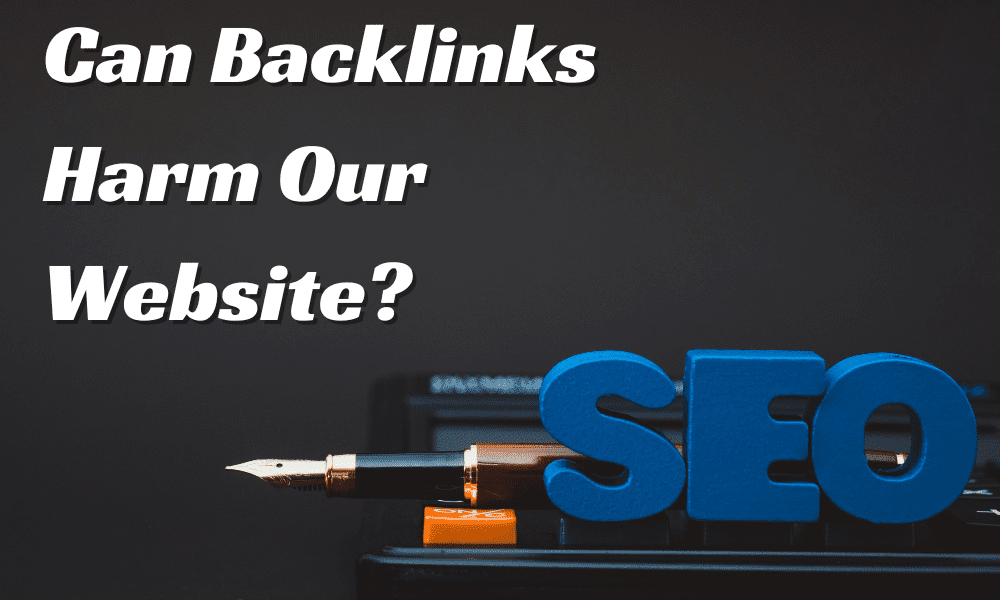Can Backlinks Harm Our Website?

Backlinks have long been considered a cornerstone of SEO, serving as endorsements from one website to another. High-quality backlinks from authoritative sites can significantly boost your site’s credibility and search engine rankings. However, not all backlinks are beneficial. In fact, specific backlinks can harm your website, leading to penalties and reduced rankings. Let’s explore how backlinks can potentially damage your site and what you can do to protect yourself.
The Dark Side of Backlinks
Low-Quality or Spammy Backlinks
Backlinks from low-quality or spammy websites can hurt your site’s reputation. These sites often engage in questionable practices, such as link farming or using automated tools to generate links. Search engines like Google strive to provide users with high-quality, relevant search results and may penalize sites associated with spammy backlinks.
For example, suppose your website has numerous backlinks from sites that have been flagged for spamming or distributing low-quality content. In that case, search engines might interpret this as an attempt to manipulate rankings. This could result in a drop in your site’s ranking or even a manual penalty from Google.
Irrelevant Backlinks
Relevance is a key factor in determining the value of a backlink. If your website accumulates a significant number of backlinks from sites that have no relevance to your industry or niche, search engines may view these links as unnatural. For instance, a website about health and wellness should ideally receive backlinks from other health-related sites, not from unrelated sites like car dealerships or gaming blogs.
Irrelevant backlinks can dilute your backlink profile, making it appear as though you are engaging in manipulative linking practices. This can lead to a decrease in your search engine rankings and overall site authority.
Over-Optimized Anchor Text
Anchor text is text that you click to follow a hyperlink. Using keyword-rich anchor text can be beneficial, but over-optimizing an anchor can raise red flags with search engines. If too many of your backlinks use the exact match keywords as anchor text, it can appear as though you are trying to manipulate search rankings.
Google’s Penguin algorithm, for instance, targets sites that engage in keyword stuffing and over-optimization of anchor text. If your backlink profile shows an unnatural pattern of anchor text usage, your site could be penalized, significantly dropping your ranking.
Negative SEO Attacks
Negative SEO involves malicious practices aimed at harming a competitor’s website. One common tactic is to create a large number of spammy or harmful backlinks pointing to the target site. These unnatural links can trigger penalties from search engines, damaging the victim’s search rankings and online reputation.
To protect against negative SEO attacks, regularly monitor your backlink profile using tools like Google Search Console, Ahrefs, or SEMrush. These tools can help you identify suspicious backlinks and take corrective action promptly.
How to Mitigate the Risks of Harmful Backlinks
Regular Backlink Audits
Conduct regular backlink audits to identify and evaluate the quality of the links pointing to your site. Tools like Moz, Ahrefs, and SEMrush can help you analyze your backlink profile and detect any low-quality or suspicious links.
Disavow Toxic Backlinks
If you identify harmful backlinks, use Google’s Disavow Tool to inform Google that you do not want these links to be considered in your site’s ranking. This tool should be used with caution, as disavowing legitimate backlinks can negatively impact your SEO.
Build High-Quality Backlinks
Focus on building high-quality backlinks from reputable, relevant websites. Engage in legitimate link-building practices such as guest blogging, content marketing, and establishing relationships with industry influencers. You can look at the Click Intelligence app to see how a professional company could help your business. High-quality backlinks improve your SEO and protect your site from potential penalties.
Monitor Competitor Backlink Profiles
Keeping an eye on your competitors’ backlinks can give insights into their link-building strategies and help you identify opportunities for your site. It can also alert you to any negative SEO tactics being used against you.
Stay Updated on SEO Best Practices
SEO is an ever-evolving field; keeping up to date with the latest updates and best practices is crucial. Follow industry blogs, attend webinars, and participate in forums to keep your knowledge current and ensure your strategies align with search engine guidelines.
Conclusion
While backlinks are an essential element of SEO, they can pose risks if not managed properly. Low-quality, irrelevant, or over-optimized backlinks can harm your website, leading to penalties and reduced rankings. By conducting regular backlink audits, disavowing toxic links, and focusing on building high-quality backlinks, you can protect your site and maintain a solid online presence. Staying vigilant and informed about SEO best practices will help you navigate the complexities of backlink management and ensure your website continues to thrive in search engine results.





